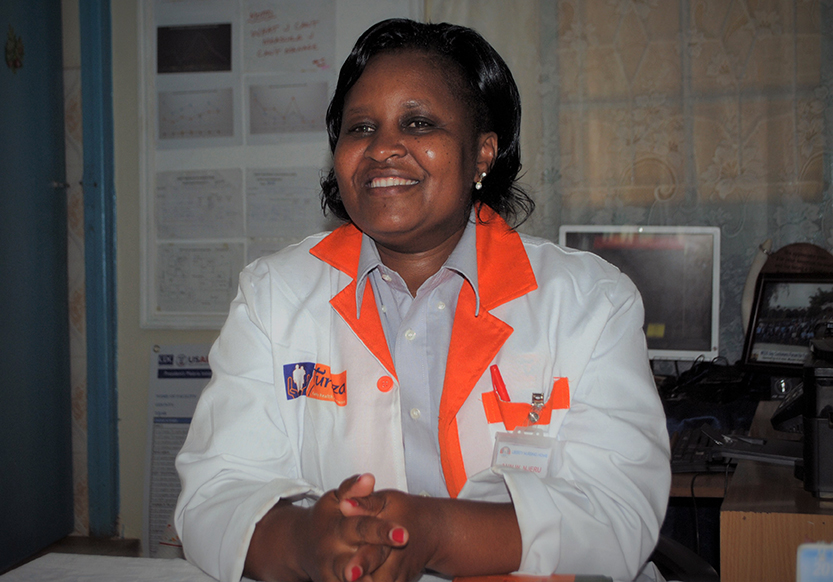How social franchising can empower women

Social franchising empowers female providers in multiple ways according to the preliminary findings of a SHOPS Plus study.
Social franchising was designed to achieve positive health outcomes but not designed to specifically improve gender equality. The project team set out to see if female franchisees were empowered through social franchising and identify interventions through which the social franchises might more intentionally and consistently improve gender outcomes. By conducting interviews with franchisees in Kenya and Uganda, the team captured the stories of the franchisees like Ann, and illustrated how their lives were changed by being part of a franchise.
In 2012, Ann was running a small clinic of her own when she participated in a training by Tunza, the social franchising network run by PS Kenya.
She credits Tunza with improving her family planning skills and helping her register with the national health insurance plan. Tunza business training helped her understand how to apply for and pay back loans. As a result, the clinic has grown substantially. She was able to purchase new equipment and she is able to pay workers better, improving retention.
The benefits of her success extend well beyond the clinic walls. Her financial success has allowed her to invest in her children’s education, with a son in private school and a daughter getting her master's degree. She was able to purchase a car without a loan, and she is paying for her own higher degree in nursing.
She says never looked at her facility as a business before Tunza. Now, she says, people in her church tell her that she is a role model as both a businesswoman and a health provider.
Ann hasn’t stopped dreaming. The facility keeps growing as she dreams bigger and hears what the community wants. In response to community demands, she built a private maternity suite on the second floor of her facility, and she plans on building two more. She hopes to be able to offer more outpatient services and hire a doctor on staff. Ann has also benefited from the installation of a clinic management system that aims to automate processes and improve business operations.
Ann’s transformation from small clinic owner to owner of a thriving business that employees over 20 people shows just how far a woman provider can come with support from social franchising. “When you are empowered, you realize the potential you have and you go for it.”
This story is part of a series of interviews SHOPS Plus conducted to highlight how social franchising empowers women providers. The results of the study will appear in a forthcoming publication on gender and social franchising, to be issued in the spring of 2019. It will include more interviews and recommendations to improve women’s empowerment.
Learn more about our franchising work.